The Environmental Benefits of Modular Construction
Discover sustainable modular construction, using prefabricated modules manufactured off-site for eco-friendly building practices.

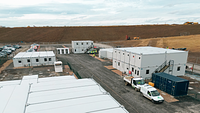
In recent years, there has been a growing interest in sustainable construction practices. One of the ways in which sustainability is being promoted is through the use of modular construction.
Modular construction is a method of building in which prefabricated modules are manufactured off-site, transported to the desired location, and assembled to form a complete building. Modular construction offers a range of environmental benefits, including:
1. Reduced waste
Modular construction produces less waste than traditional construction methods. Because the modules are manufactured off-site, there is less waste generated during the construction process. Additionally, modular construction allows for more precise cuts and measurements, which reduces the amount of material waste.
2. Energy efficiency
Modular buildings can be energy-efficient. The modules are constructed in a factory setting, which allows for greater control over the building process. This means that modules can be more airtight, and insulation can be installed more precisely. This reduces energy consumption and lowers utility costs.
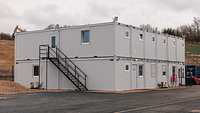
3. Reduced carbon footprint
Modular construction has a smaller carbon footprint than traditional construction methods. This is because the construction process is more efficient and produces less waste. Additionally, the manufacturing process of modular buildings can use recycled materials, further reducing the carbon footprint.
4. Sustainable materials
Modular construction allows for the use of sustainable materials. Because the modules are built in a factory, manufacturers can carefully source materials and ensure that they are sustainably produced. Additionally, modular construction can use recycled materials to further reduce the environmental impact.

5. Reduced site disruption
As modular buildings are constructed off-site, there is less disruption to the construction site when it is in the build stage. This means that there is less damage to the surrounding environment, and fewer disruptions to the local community.
6. Sustainable transportation
Modular construction also promotes sustainable transportation practices. Because the modules are transported to the construction site, there is less need for on-site transportation, which reduces the carbon footprint. The units can also be delivered flat-packed too.
In conclusion, modular construction offers a range of environmental benefits, including reduced waste, energy efficiency, a smaller carbon footprint, sustainable materials, reduced site disruption, and sustainable transportation. By choosing modular construction, you can help to promote sustainability in the construction industry while still achieving your construction goals.
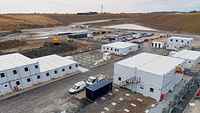
You may also be interested in...
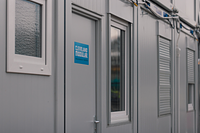
The Benefits of Hiring a Modular Building for Your Business
Discover the advantages of hiring a modular building for your business: convenience, versatility, and cost-effectiveness.
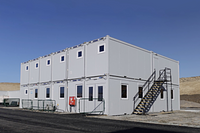
How to Choose the Right Modular Building for Your Specific Needs
Find your ideal modular building layout with our expert team's guidance. Offices, schools, healthcare facilities, and more.
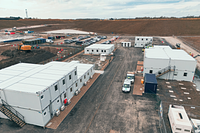
The Advantages of Hiring a Modular Building over Buying
Flexible and affordable modular buildings for hire. From temporary offices to long term healthcare facilities.
